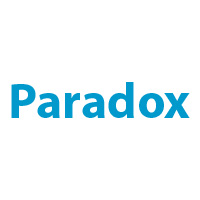What is Paradox?
A paradox is a statement which seems to be self contradictory, absurd or nonsensical on the surface but really containing a possible truth upon closer examination. It reveals a deeper truth upon close analysis.

As a rhetorical device, paradox is used to capture the reader’s attention so as to direct to a specific point or image that provokes the readers to see something in a new way. When two opposite words are juxtaposed, thereby presenting a paradox for rhetorical effect, the author or speaker is said to use phrase with contradictory words like 'wise fool' or 'legal murder’.
Paradox has been used much more broadly by the New Critics to refer to any sudden shift from ordinary language or discourse. Cleanth Brooks has maintained paradox to his poetic language. Besides, paradox was also extremely used by the metaphysical poets like John Donne, Andrew Marvell and so on. John Donne in his “Canonization” uses paradox by showing the renounce of the word by the lovers as the hermit renounces the world.
Published on 23 Jan. 2014 by Kedar Nath Sharma
